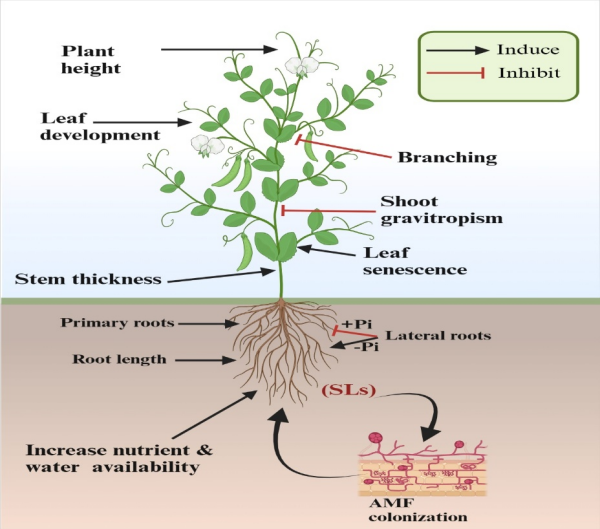Strigolactone Is Key Root Hormone for Developing Climate-Resilient Crops and Novel Agrochemicals
2025-10-20
A new literature review published in the Journal of Environmental Management, researchers have unveiled the significant potential of Strigolactones (SLs) as plant root hormones for boosting crop resilience and productivity under stressful environments, offering a promising, sustainable pathway to develop stress-resistant crop cultivars and novel agrochemicals for sustainable crop production under challenging conditions.
Led by researchers from the Xinjiang Institute of Ecology and Geography of the Chinese Academy of Sciences, the review addresses a critical challenge in modern agriculture by exploring how SLs, which are naturally exuded by plant roots, can be used to help crops withstand multiple environmental stresses.
Environmental stresses like drought, salinity, and extreme temperatures impact over 90% of arable land, causing significant yield losses worldwide. This review delves into how SLs regulate plant growth and development by coordinating complex responses to mitigate environmental stresses, which are increasingly exacerbated by climate change.
A key insight from the review is that SLs serve multiple, interconnected functions. The transcriptomic analyses reveal that SLs regulate stomatal conductance, boost antioxidant activity, and modulate the levels of other crucial hormones like auxin, gibberellic acid, cytokinins, and abscisic acid to orchestrate an optimal stress response.
SLs are not merely growth promoters but are versatile signalling molecules that influence shoot and root architecture. They act as rhizosphere signals, which enhance hyphal branching in arbuscular mycorrhizal fungi, extending the reach of the root system for water and nutrients under stressful conditions.
"These multifaceted capabilities of SLs can enable the targeted breeding of stress-resilient crops with optimized plant architecture, a key trait for productivity under adverse conditions, "said Zeeshan Ahmed, first author of the study.
The researchers have identified several promising applications, including the development of stable SL-based agrochemicals, such as the analogs GR24 and Nijmegen-1. Advances in microbial engineering also enable the efficient production of these compounds in hosts like Escherichia coli, paving the way for scalable and cost-effective solutions for farmers, especially the control of parasitic weeds.
This review provides a solid scientific foundation for future research, suggesting that translating the potential capabilities of SLs into practical field applications could be a game-changer for enhancing crop resilience and ensuring food security in a changing climate.
Read the full article: https://doi.org/10.1016/j.jenvman.2025.127629

Strigolactones exuded by roots regulate different aspects of plant growth and development. (Image by XIEG)
Contact
LONG Huaping
Xinjiang Institute of Ecology and Geography
E-mail: longhp@ms.xjb.ac.cn
Web: http://english.egi.cas.cn



